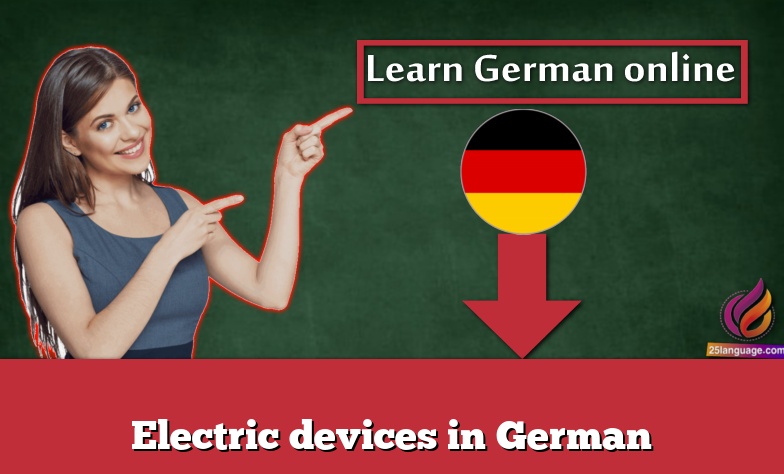Electric devices in German

Learning about electric devices in German can be beneficial for several reasons:
- Travel and International Relations: If you plan to travel to German-speaking countries, knowing about electric devices in German can be helpful for understanding and operating electrical appliances. It allows you to navigate different types of outlets, plugs, and voltage specifications, ensuring you can safely charge your devices and use electrical equipment.
- Everyday Life: Understanding electric devices in German enables you to effectively communicate and troubleshoot issues related to electronics and appliances in German-speaking environments. Whether it’s discussing technical problems with customer support, reading instruction manuals, or purchasing new devices, knowing the relevant vocabulary can make these tasks easier.
- Work and Professional Development: In professional settings, particularly in industries related to electronics, engineering, or technology, knowledge of electric devices in German can be essential. It allows you to communicate with colleagues, understand technical documentation, participate in meetings, and collaborate on projects involving electrical equipment.
| English | German |
|---|---|
| Smartphone | Smartphone |
| Laptop | Laptop |
| Television | Fernseher |
| Refrigerator | Kühlschrank |
| Washing machine | Waschmaschine |
| Microwave | Mikrowelle |
| Blender | Mixer |
| Vacuum cleaner | Staubsauger |
| Hair dryer | Föhn |
| Iron | Bügeleisen |
| Coffee maker | Kaffeemaschine |
| Toaster | Toaster |
| Electric kettle | Wasserkocher |
| Electric fan | Ventilator |
| Air conditioner | Klimaanlage |
| Dishwasher | Geschirrspüler |
| Electric oven | Elektroherd |
| Electric grill | Elektrogrill |
| Electric toothbrush | Elektrische Zahnbürste |
| Speaker | Lautsprecher |
| Game console | Spielekonsole |




























